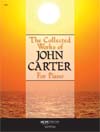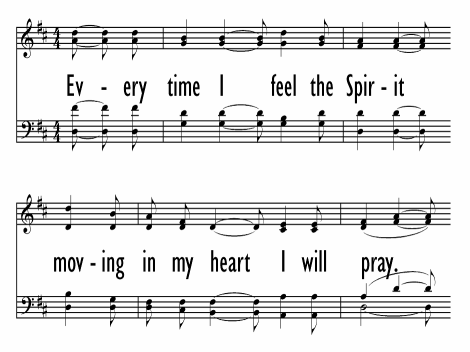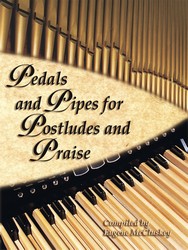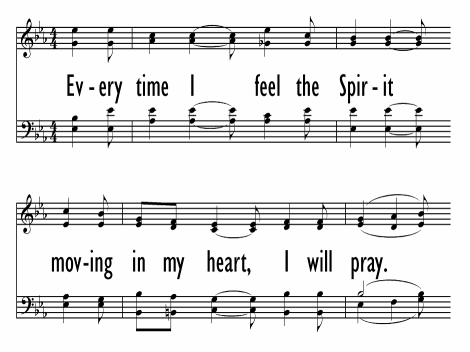- |
User Links
383
My Spirit Glorifies the Lord
Hymn Information
- First Line
- My spirit glorifies the Lord
- Versifier
- Dewey Westra (1931)
- Text Source
- Revised <cite>Psalter Hymnal</cite>, 1987
- Tune Name
- PENTECOST
- Composer
- William Boyd (1868)
- Topic
- Time
Copyright Information
- Text Copyright
- © 1987 Faith Alive Christian Resources
- Tune Copyright
- Public Domain
- Reprint/Projection Information
- Words: Permitted with a license from CCLI.com or from OneLicense.net. If you do not own one of these licenses, please contact the copyright holder for permission.
- Music: The Music is in the Public Domain; you do not need permission to project or reprint the Music.
Scripture References
- ·
Thematically related:
- st. 5 = · ·
Further Reflections on Scripture References
This song is reflective of Mary’s magnificat in Luke 1:46-55. See how Hannah’s prayer in I Samuel 2:1-10 follows a similar line of thought.
In st.5 God’s word to Abraham is found in Genesis 12:1-7; 15:1-6; and 17:1-16 as well as other places.
Confessions and Statements of Faith References
Further Reflections on Confessions and Statements of Faith References
Mary sang these thoughts first, with the awareness that God had chosen to use her as an instrument in the arrival of his Son in the world. This event is mentioned in Heidelberg Catechism, Lord’s Day 14, Question and Answer 35 and Belgic Confession, Article 18.
383
My Spirit Glorifies the Lord
Author Information
Dewey D. Westra (b. Holland, MI, 1899; d. Wyoming, MI, 1979) was a dedicated educator, writer, and musician who faithfully served the Christian Reformed Church. He attended Calvin College, Grand Rapids, Michigan, and Wayne State University in Detroit. In the 1920s and 30s he was a Christian school Principal in Byron Center and Detroit, Michigan. During the 1940s he was involved in various ventures, including becoming a diesel instructor for the Ford Motor Company. After 1947 he became a principal again, serving at Christian schools in Sioux Center, Iowa; Randolph, Wisconsin; and Walker, Michigan. Westra wrote poetry in English, Dutch, and Frisian, and translated poetry into English from Dutch and Frisian. He arranged many songs and composed songs for children's choirs. He also versified all one hundred and fifty psalms and the Lord's Prayer, as well as the songs of Mary, Zechariah, and Simeon, in meters that fit the corresponding Genevan psalm tunes. His manuscripts are housed in the library of Calvin College. Seventeen of his psalm versifications and his paraphrases of the Lucan canticles were included in the 1934 and in the 1959 editions of the Psalter Hymnal. Much of the credit for keeping the Genevan psalms alive in the Christian Reformed Church goes to Westra.
—
Bert Polman
Composer Information
William Boyd (b. 1847, Jamica, d. 1928, London) studied under Sabine Baring Gould, then attended Worcester College, Oxford. Ordained an Anglican priest in 1877, he eventually became Vicar at All Saints Church in Norfolk Square, London (1893-1918). He contributed his tune PENTECOST to the 1868 collection Thirty-Two Hymn Tunes Composed by Members of the University of Oxford.
—
Hymntime (http://www.hymntime.com)
Suggestions or corrections? Contact us


 My Starred Hymns
My Starred Hymns






